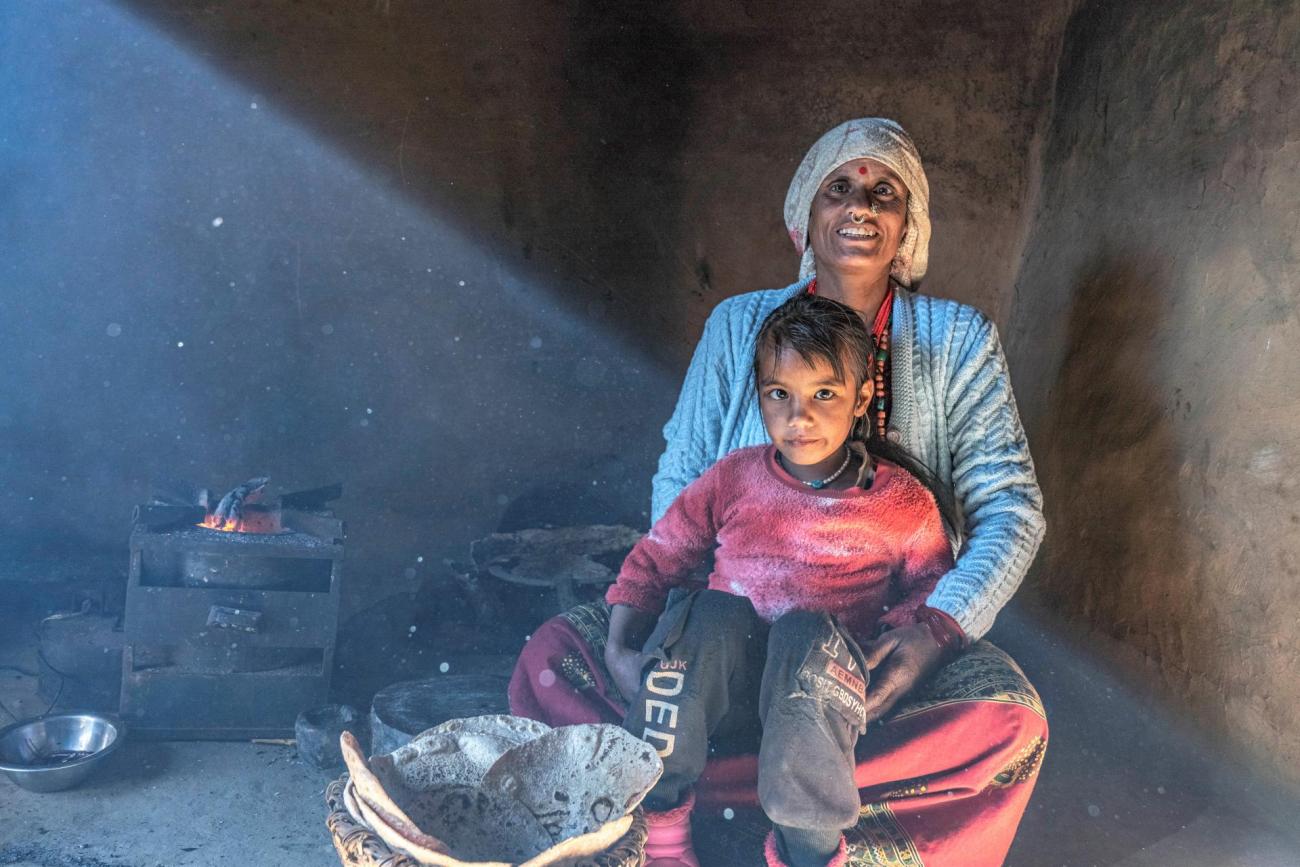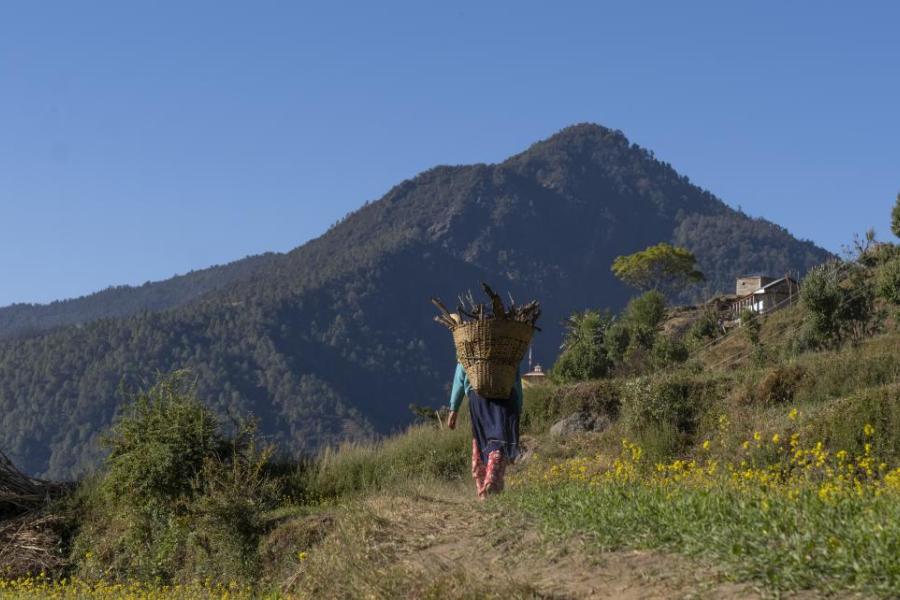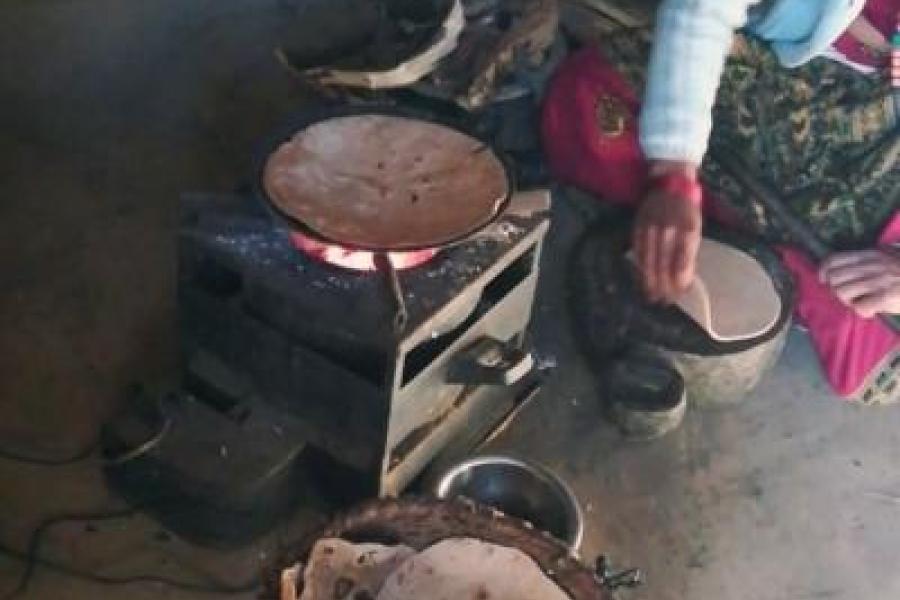Cooking clean

In 6 remote municipalities, improved eco-cookstoves delivered by UNICEF in partnership with local governments are helping to protect the women & children health
Kalikot, Nepal: On a cold December morning in the kitchen of her home in the hilly environs of Khandachakra Municipality in Kalikot District in Nepal’s remote west, Ganga Shahi plays with her little girl Yasodha, mother and daughter bathed in the warm sunlight streaming through the window. From time to time, Ganga turns to check on the rotis she is making on the stove next to them, flipping and tossing them into a waiting basket when ready.
The stove is a relatively new addition to Ganga’s kitchen. What makes it different from what she had been using before? This is an improved ‘eco-cookstove’, a device that is far more efficient, clean and time-saving than traditional stoves, and one that the 45-year-old says has made her life “a lot easier” on different fronts.
“When we were using the traditional stove, we needed much more firewood,” Ganga says, describing the seven-hour walk it used to take to fetch just one load or ‘bhari’ of firewood – weighing between 50-60 kilograms approximately – from the nearby Khadikhola jungle, a grueling process that would have then to be repeated seven or eight times before the month ended. “It was difficult carrying all that weight home on our backs, but if we didn’t do it, we couldn’t cook.”

Now, however, those trips have been cut down substantially. “We can manage with just around three loads per month because the new stove doesn’t need so much wood,” she says.
Indeed, according to local social mobilizer Sharmila Shahi, while households needed around 13 kilograms of firewood per day on average, the consumption with the eco-cookstove is significantly low, at an average of 2.5 kilos per day.
Ganga has also noted positive effects on her health.
“Before, when I stayed in the kitchen too long when cooking, my eyes would get sore, I would struggle to breathe properly and my head would start to hurt because of all the smoke,” she says.

A few times, the burning in her eyes and respiratory issues had compelled her to seek medical help at hospitals in the cities of Nepalgunj and Surkhet, journeys that took hours and cost money.
“Since using the new stove, I haven’t had these issues,” she says.
Ganga’s family is among 9,844 households that have so far received such improved eco-cookstoves as part of the Eco-Zone programme launched by UNICEF – with generous funding support from the Jersey Overseas Aid – in partnership with six municipalities in the Sudurpaschim and Karnali Provinces.
Launched in 2021, the project is focused on various interventions to improve maternal and child health, as well as help prevent deforestation – by establishing green spaces in schools and health facilities – and boost livelihoods in some of the country’s most hard-to-reach areas. This includes sensitization and trainings for government officials, community leaders, health workers, educators and households on key climate, energy and environment issues, as well as on disaster risk reduction.
The distribution of improved eco-cookstoves is a key part of the effort, given how heavily communities across rural Nepal rely on inefficient and smoke-emitting traditional stoves – still used by 2.8 million households, according to reports. Besides using up large amounts of firewood and contributing to deforestation, these stoves also cause indoor air pollution by emitting severe pollutants, primarily affecting women who use them daily, and the young children who are usually by their mothers’ side, and causing respiratory illnesses, among other issues.
“The benefits of this project for families in the area, particularly women and children, are clear,” says Jaisi Prasad Chaulagain, Acting Chief Administrative Officer at the Khandachakra Municipality. “We feel that this has been a very effective venture.”
Ganga, for one, is in full agreement with this sentiment. “I have so much more time now to care for my children, make sure they get ready for school on time, and to do other things, like tend to the vegetables in our garden,” she says. “I wish we’d had the stove sooner.”
UNICEF Nepal/2022/SShrestha
Source : UNICEF Nepal




